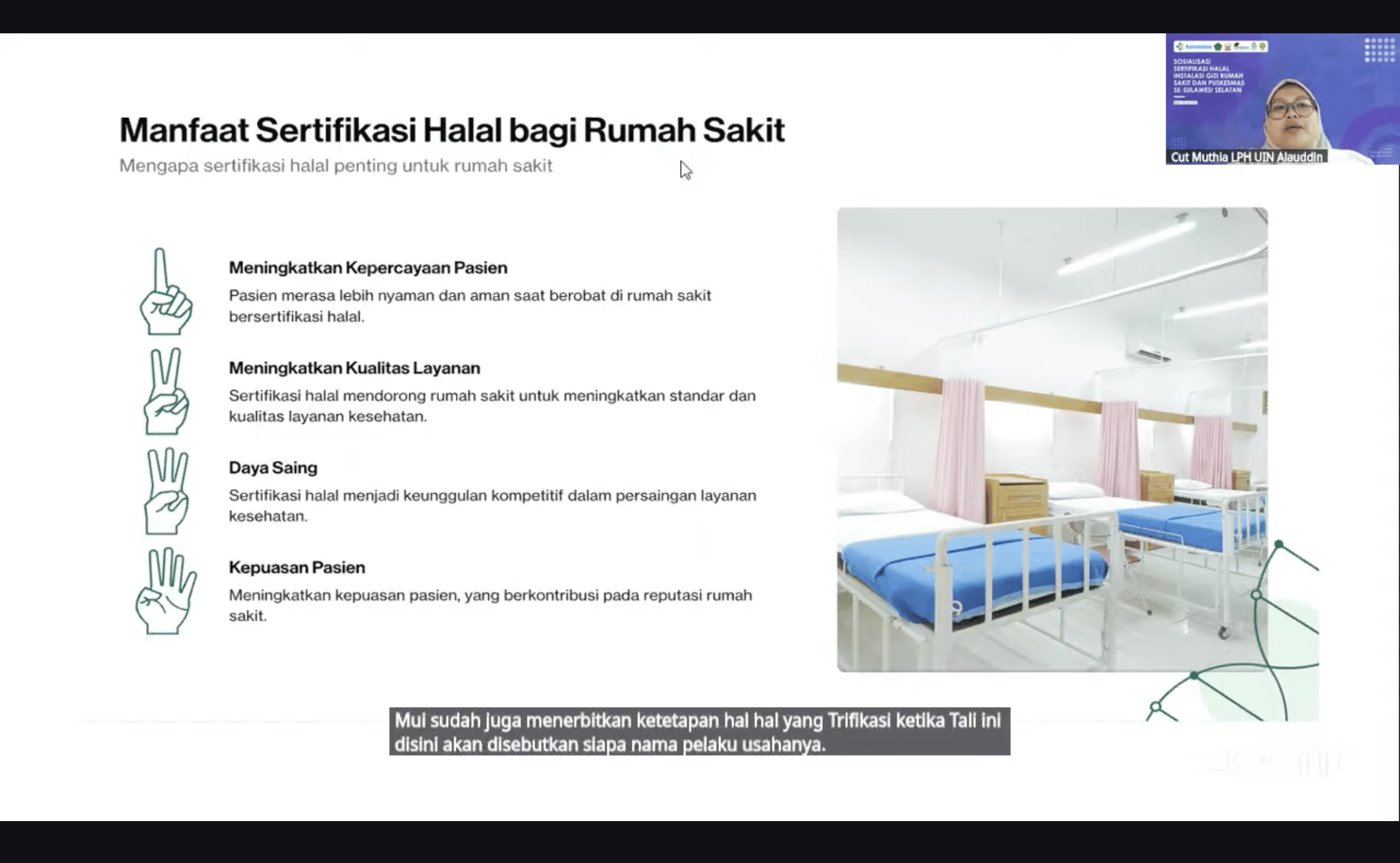To Promote Halal Certification for Healthcare Facilities, the South Sulawesi Health Office Holds Large-Scale Outreach Program
Makassar, June 23, 2025 – To ensure the successful implementation of the 2026 mandatory halal policy, the South Sulawesi Provincial Health Office held a Halal Certification Socialization event for Hospital and Community Health Center Nutrition Installations throughout South Sulawesi. The event was held virtually via Zoom and broadcast live on the Health Office's official YouTube channel.
The enthusiasm of the participants was evident in the significant turnout. Around 400 Community Health Center Heads from all sub-districts in South Sulawesi participated, along with eight Regional Hospital Directors and Regional General Hospital Directors from 24 regencies/cities in the province.
The Head of the South Sulawesi Health Office, Dr. dr. H. M. Ishaq Iskandar, M.Kes, MM, MH, who also initiated the event, officially opened the socialization. In his remarks, he emphasized the importance of halal certification for nutrition facilities as part of consumer protection efforts and improving the quality of healthcare services. He also encouraged the active involvement of local governments, particularly the Governor of South Sulawesi, in issuing a circular requiring all healthcare services to obtain halal certification.
The event was held in collaboration with the South Sulawesi Provincial Office of the Ministry of Religious Affairs and the Halal Inspection Institute (LPH) of UIN Alauddin Makassar. The keynote speakers were Dr. Muhammad Nur, S.Pd.I., S.E., M.M. (Secretary of the Halal Product Assurance Task Force), and Dr. Cut Muthiadin, M.Si. (Chair of the LPH UIN Alauddin).
In his presentation, Dr. Muhammad Nur stated that the halal certification process for nutrition services in hospitals and community health centers (Puskesmas) is a crucial part of the initial stages of implementing mandatory halal certification, especially ahead of the 2026 deadline for MSMEs. He welcomed the progressive steps taken by the South Sulawesi Health Office, which he believed could serve as an example for other agencies.
Meanwhile, Dr. Cut Muthiadin highlighted the technical aspects and urgency of implementing halal standards in nutrition services. She stated that halal certification not only meets regulatory requirements but also increases patient trust and strengthens the branding of healthcare facilities.
During the discussion, participants actively asked questions, including those related to certification costs. Dr. Muhammad Nur explained that the official rate starts at IDR 300,000 for services at the BPJPH (Healthy Food and Beverage Agency), with additional operational costs from the LPH (Healthy Food and Beverage Agency). Dr. Cut also added that every health facility is free to choose a halal inspection institution (LPH), not only LPH UIN Alauddin Makassar, but also other institutions such as LPH Unhas, BBIHPMM, and national LPHs such as LPPOM MUI, Sucofindo, and KHT Muhammadiyah.
Several healthcare facilities in South Sulawesi have already taken the first steps. The Nutrition Unit at Habibie Ainun Hospital in Parepare City has received halal certification, while Ananda Makassar Women's and Children's Hospital (RSIA) has partnered with a halal-certified food provider.
With this initiative, the South Sulawesi Health Office hopes that all hospitals and community health centers (Puskesmas) in the region can quickly transform into healthcare services that not only provide medical quality but also meet halal requirements, in accordance with the mandate of the Halal Product Guarantee Law.



